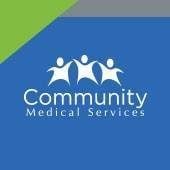Western Montana Mental Health Center - Share House
Drug Rehab Center in Missoula, Montana
Western Montana Mental Health Center - Share House is an accredited behavioral healthcare facility that offers various treatments and therapies to individuals suffering from mental health issues and addictions, including opioid addiction, substance abuse, dual diagnosis, drug addiction, mental health, and alcoholism.
About This Missoula, MT Facility
Western Montana Mental Health Center - Share House is a private rehab facility located in Missoula, Montana, specializing in dual diagnosis and mental health treatment. It offers comprehensive services tailored to meet individual needs, from inpatient detox to long-term care.
- Experienced staff provide evidence-based therapies, including cognitive-behavioral therapy, family therapy, and medication-assisted treatment.
- A range of treatment options cater to various mental health issues and addictions, such as substance abuse, anxiety, depression, and trauma-related disorders.
- The facility provides a supportive environment with aftercare, health education, and Hepatitis education and support services.
Accredited by the Commission on Accreditation of Rehabilitation Facilities (CARF), Western Montana Mental Health Center - Share House upholds a commitment to quality and safe care. Its mission is to provide comprehensive health services and housing options to individuals facing mental health and substance use disorders, meeting them where they are without turning anyone away.
The center offers treatment for various addictions, including drug and alcohol misuse, as well as mental health conditions such as crisis, anxiety, depression, trauma-related disorders, and obsessive-compulsive disorder. Treatment methods encompass 12-step programming, cognitive and behavioral therapies, family therapy, acceptance and commitment therapy, motivational interviewing, and medication-assisted treatment, catering to different levels of care.
Genders
Ages
Modality
Additional
Accreditations

CARF
The Commission on Accreditation of Rehabilitation Facilities (CARF) is a non-profit organization that specifically accredits rehab organizations. Founded in 1966, CARF's, mission is to help service providers like rehab facilities maintain high standards of care.
Conditions and Issues Treated
Using both legal medications and illegal substances in order to maintain an addiction is substance abuse. Illegal substances can become addictive after a single use. If you are obtaining legal medications illegally, you may be suffering from substance abuse.
Fortunately facilities like Western Montana Mental Health Center - Share House in Missoula, MT are here to help.
Opioid addiction treatment facilities in Montana, like Western Montana Mental Health Center - Share House cover both illegal and prescription opioids abuse. Most plans include detoxification and subsequent medications to ease the process. Behavioral therapies and counseling are also necessary to resolve the root cause of addiction.
A dual diagnosis is when someone deals with both alcohol and mental or emotional disorder. Emotional trauma, bipolar disorder, schizophrenia, depression can be part of dual diagnosis therapy. It must happen simultaneously to get care for these conditions to handle any of them effectively.
Levels of Care Offered
This center offers a variety of custom treatment tailored to individual recovery. Currently available are Aftercare Support, Detox, Drug Rehab, Dual-Diagnosis, Inpatient, Outpatient, Partial-Hospitalization, Residential, with additional therapies available as listed below.
Detox is a drug rehab process that is designed to remove the drug addict from the drug safely. The problem with solely using detox as a sobriety tool is that it alone provides no therapy or counseling. If a person goes through detox and returns to their everyday life, they may begin using again once the detox has worn off.
Detox does not help with cravings, so for some addicts, this can be extremely difficult and should be both done and supervised by medical professionals. Aftercare is crucial, so selecting a facility that offers additional services is important.
Inpatient treatment takes place when a patient checks into a rehab facility. Patients at Western Montana Mental Health Center - Share House receive round the clock care that includes detoxing and therapy. Although outpatient treatments are available, inpatient care is recommended as the first step in rehabilitation. The intensive and comprehensive treatment sets patients on a path for drug free living.
An outpatient treatment program is set up to help with alcohol or drug addiction, or a co-occurring disorder. The patient must attend the Montana facility for their therapy and other programs but are able to return home each night. The frequency of mandatory attendance decreases after much of Western Montana Mental Health Center - Share House‘s program is complete.
A partial hospitalization program is set up to cover those struggling with acute symptoms of addiction. This means that the individual is cared for in a hospital-like environment in Missoula, MT during the struggle of those symptoms, but allowed to go home at night. Most PHPs require approximately six-hours of therapy, at least three days per week.
Residential treatment programs are those that offer housing and meals in addition to substance abuse treatment. Rehab facilities that offer residential treatment allow patients to focus solely on recovery, in an environment totally separate from their lives. Some rehab centers specialize in short-term residential treatment (a few days to a week or two), while others solely provide treatment on a long-term basis (several weeks to months). Some offer both, and tailor treatment to the patient’s individual requirements.
Treatment is just the first step to maintaining sobriety. After treatment, aftercare support at Western Montana Mental Health Center - Share House helps the individual adjust to a life without substances. This support may involve a sober living home in or near Missoula, MT, career counseling, or educational assistance. This is when a relapse prevention plan begins to take shape.
Treatment programs include individual therapy for the greatest chances of success. Customized individual therapy is counseling involving you and your Western Montana Mental Health Center - Share House counselor. Individual therapy leads to greater peace and understanding about your triggers for addiction.
When family members are more proactive and involved in the treatment procedure, it encourages the patient to advance his or her progress. Moreover, it shouldn’t be ignored that genetics play a role when it comes to addiction, so it’s better to approach the problem as a unit. Also, with proper education, family members can help an individual avoid addiction triggers and guide him or her in making lifestyle changes necessary for his or her sobriety.
It has been said that unhealed trauma is the root of most addictions. Trauma therapy is a way of addressing trauma while in a safe situation in order to heal. Healing past traumas and introducing coping strategies are strong foundations for sustained recovery from addiction. This may involve individual or group counseling or both, in a Missoula, MT facility. Other forms of therapy have been proven to assist in healing past traumas.
Dialectical Behavior Therapy (DBT) helps those who attend Western Montana Mental Health Center - Share House understand how their feelings, beliefs, and thoughts affect their behaviors. DBT is particularly useful for people with self-harming behaviors, as well as those with substance abuse disorders. DBT teaches people how to tolerate distress, regulate their emotions, and how to become mindful.
Cognitive Behavioral Therapy (CBT) is a type of psychotherapy that focuses on the underlying thoughts and behaviors that caused the problem of addiction in the first place and may cause a relapse. Negative feelings are common in substance abuse disorders, and if not recognized, they can cause co-occurring disorders.
CBT involves strategies that help to change the thinking and behavioral pattern by cognitive restructuring. In simple terms, it helps to remove negative thoughts and provides long-term benefits. Also, CBT promotes self-awareness, self-control, and healthy ways to respond to negative thoughts. It can be administered as a mono-therapy as well as a part of combination therapy.
The 12-step program is a part of substance abuse treatment. In this program, peers help each other to achieve the goal of abstinence. It was initially developed by the founders of Alcoholics Anonymous. Due to its huge success, the 12-step program is included as a part of other substance abuse treatments.
The 12 steps guide at an individual level. It begins with the individuals accepting that they are addicts, and they understand its consequences. It is followed by focusing on the recovery process and making amends for hurting others. The program provides the benefit of cognitive restructuring, which refers to the process of change in the negative thoughts that leads to long-term benefits.
Patient Experience
Creative Arts
Many people opt for creative arts therapy at Western Montana Mental Health Center - Share House because allowing out the creative side helps them process many situations. Creative arts therapy can include singing, playing instruments, writing, sculpting, fashion, painting, improv, building, and more. The creation process helps people think through puzzles to achieve and end result, which can then be applied to the process from addiction through recovery.
Experiential Therapy at Western Montana Mental Health Center - Share House
Experential therapy is a unique type of therapy that deals with the subconscious mind. This treatment offered by Western Montana Mental Health Center - Share House in Missoula, MT encourages individuals to work out their issues with their inner self. Some of the most common examples of experiential therapy are equine therapy, music therapy, adventure therapy, and role playing.
Payment Options Accepted
For specific insurance or payment methods please contact us.
Is your insurance accepted?
Ask an expert, call (888) 674-0062
Additional Details
Specifics, location, and helpful extra information.
Missoula, Montana 59801 Phone Number(406) 532-9830 Meta DetailsUpdated April 15, 2024
Staff Verified
Patient Reviews
There are no reviews yet. Be the first one to write one.
Missoula, Montana Addiction Information
Montana has one of the highest rates of drug and alcohol abuse in the nation. More than 280,000 of its residents engage in drug or alcohol abuse every year. Marijuana, in particular, is heavily used among high school students. Despite these daunting trends, the state is grappling with the issue head-on.
Missoula has a rate of overdose deaths higher than the national average. In Missoula, there are about 15.8 overdose deaths per 100,000 residents annually. In 2012, there were 726 cases of drug-related hepatitis in Missoula. Methamphetamine and cocaine are also common drug choices among citizens of Missoula, MT. It is important to consider the type of treatment that will be most effective for you or the person you love.
Treatment in Nearby Cities
- Polson, MT (57.3 mi.)
- Jordan, MT (335.9 mi.)
- Miles City, MT (389.4 mi.)
- Broadus, MT (423.8 mi.)
- Lame Deer, MT (361.8 mi.)
Centers near Western Montana Mental Health Center - Share House
The facility name, logo and brand are the property and registered trademarks of Western Montana Mental Health Center - Share House, and are being used for identification and informational purposes only. Use of these names, logos and brands shall not imply endorsement. RehabNow.org is not affiliated with or sponsored by Western Montana Mental Health Center - Share House.





